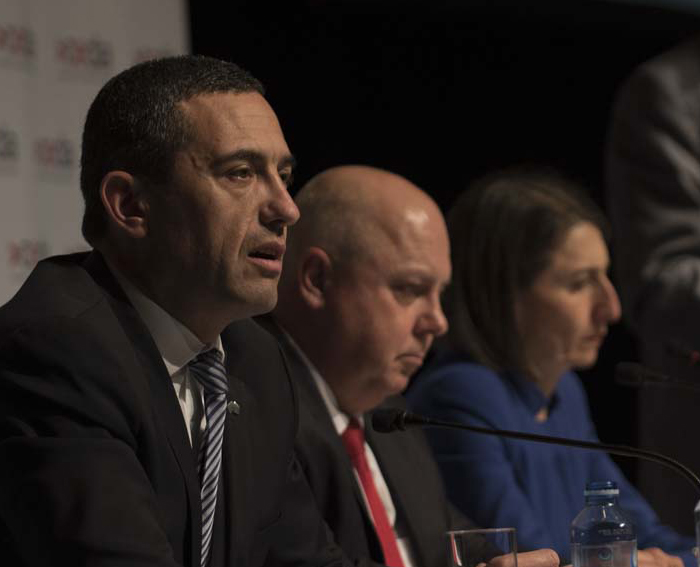PROGRESS 2050: Toward a prosperous future for all Australians
10/10/2016

Mr Koutsantonis made the statement at the State of the Nation State Treasures panel also featuring Treasurer of New South Wales, the Hon. Gladys Berejiklian and Treasurer of Victoria, the Hon. Tim Pallas.
Following comments by Ms Berejiklian and Mr Pallas that both NSW and Victoria had achieved state surpluses, Mr Koutsantonis said, “It’s no surprise, you’ve got three treasurers that started out as transport and infrastructure ministers, who seem to like running healthy budgets and surpluses, who seem to like cutting taxes and investing in infrastructure.
“It’s something I think the states should be very proud of. Our fiscal position compared to the Commonwealth is much healthier. Most of us have achieved budget surpluses not through tax increases, not through bracket creep, but through restrained spending on our budget measures and investing more in infrastructure.
“What we’re seeing in places like NSW, Victoria and South Australia, is that it’s infrastructure that’s generating growth – we’re not borrowing money to pay wages or recurrent spending, or borrowing money to invest in infrastructure.
“In South Australia we’ve been cutting our own expenditure, which is quite impressive for a state of our size. We’ve achieved budget surpluses with declining revenue. I think it’s a message to the commonwealth that you can achieve budget surpluses with restraint. It takes discipline, it takes foresight, and most of all it takes courage.”
Ms Berejiklian said NSW’s budget strategy was one with budget surplus in mind.
“A few days ago I was able to announce that NSW has a cash-positive position in our general government sectors,” she said.
“We’ve got zero debt, that’s the first time that’s happened in decades. For us our fiscal strategy has been: keeping expenses down through things like wages growth, ensuring back-office operations are as efficient as possible and making sure that if you do have an additional windfall that it goes straight into infrastructure – not into the middle management of public service.
“In addition to that, our asset recycling strategy, which has allowed us to use billions up-front in investing in infrastructure.
“The key to success for NSW has been because of our consistent, certain, and good management over the infrastructure pipeline, our investment in infrastructure has supported private investment in NSW, which has spurred on economic growth and jobs growth – and that formula has given us the trifecta of surpluses, no debt, record spending, a triple A credit rating, and the list goes on, but I’ll stop.”
Mr Pallas said, “The story for Victoria is we’re keen to make sure we have surpluses going forward. Our debt has declined from when we came into government, from about 6.2 per cent of the size of the economy to about 4.6 per cent. Our aim ultimately is to progressively increase our debt to about six per cent.
“The purpose being to make the appropriate investment, but to have a consistent debt profile and so people can see where the investment is going and the long-term substantive agenda being prosecuted.
“If you look at our average infrastructure spend $4.9 billion per year after the last 10 years, we’re increasing it to $7.4 billion a year going forward, and that’s helped turn the Victorian economy around. We’ve got 177,000 new jobs created in the last two years. The economy is growing very fast. So long as the state can assist, we have the right infrastructure being invested at the right time.”
Watch State of the Nation 2016 videos.
